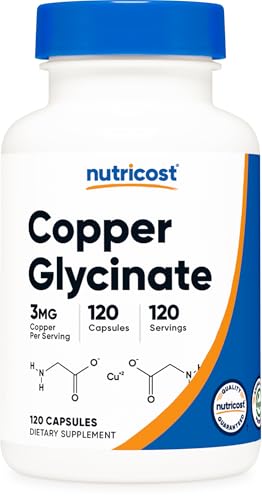Zinc: The Essential Mineral You Need to Know
Quick Summary: Zinc is a vital mineral that helps your body in many ways, from boosting your immune system to helping your body heal. This research looks at who might need more zinc and what to watch out for.
Why Zinc Matters for Your Health
Zinc is a workhorse in your body! It's involved in:
- Boosting your immune system: Helps your body fight off infections.
- Helping enzymes work: Enzymes are like tiny workers that help your body do everything.
- Protein folding: Helps your body build and repair tissues.
- Regulating genes: Helps your body function properly.
Who Might Need More Zinc?
Some people are more likely to have low zinc levels, including:
- People who don't get enough nutrients (malnourished).
- People who drink a lot of alcohol.
- People with certain digestive problems (like inflammatory bowel disease).
Study Details
This research is a review of existing studies, so it doesn't have a specific study group or time frame. It looked at what other studies have found about zinc.
What This Means For You
- Consider your diet: Make sure you're eating foods rich in zinc, like meat, nuts, and seeds.
- Talk to your doctor: If you think you might be low in zinc, talk to your doctor before taking supplements.
- Zinc for specific conditions: Zinc can be helpful for certain conditions, like Wilson's disease (a rare genetic disorder). It may also help slow down the progression of age-related macular degeneration when combined with antioxidants.
- Zinc for kids: Zinc supplements may help prevent infections and diarrhea in malnourished children.
Study Limitations
- Not a new study: This research is a review of other studies, so it doesn't have its own new findings.
- Dosage matters: The research doesn't specify the exact amount of zinc used in the studies.
- Too much can be bad: Taking too much zinc can cause problems, like copper deficiency.
Technical Analysis Details
Key Findings
The study highlights zinc’s critical role in human metabolism, enzyme function, immune response, and gene regulation. It identifies populations at risk of deficiency (malnourished, alcoholics, IBD patients) and links zinc supplementation to reduced incidence of upper respiratory infections and diarrhea in developing countries, improved outcomes in malnourished children, and slowed progression of age-related macular degeneration when combined with antioxidants. Zinc is deemed effective for Wilson disease treatment but ineffective for general upper respiratory infections, wound healing, or HIV. Long-term high-dose zinc is associated with adverse effects, including copper deficiency and suppressed immunity.
Study Design
The study is classified as an observational study (per user input) but appears to be a narrative review based on the summary provided. It synthesizes existing evidence on zinc’s biological roles, deficiency risks, therapeutic applications, and safety profile. No primary data collection methods, sample size, or duration are specified in the summary. The analysis relies on aggregated findings from prior clinical trials and population studies.
Dosage & Administration
The summary does not specify exact dosages or administration protocols used in the referenced trials. It broadly discusses zinc supplementation as a preventive or therapeutic measure, noting that adverse effects occur with long-term high-dose use, though thresholds (e.g., >40 mg/day) are not quantified in the provided details.
Results & Efficacy
The study reports modest efficacy for zinc in combination with antioxidants for age-related macular degeneration (based on unspecified trials) and preventive benefits for infections/diarrhea in developing nations. For Wilson disease, zinc is described as a first-line treatment. However, no statistical metrics (p-values, confidence intervals) or effect sizes are provided in the summary. The study notes that zinc does not significantly improve outcomes for upper respiratory infections, wound healing, or HIV in general populations.
Limitations
The review lacks methodological transparency, including sample sizes, study durations, and specific dosing regimens. As an observational synthesis, it may reflect biases from included studies, such as variability in population demographics or supplementation protocols. The adverse effects of high-dose zinc (e.g., copper deficiency) are mentioned without quantitative data on incidence rates. Future research should clarify optimal dosing thresholds, long-term safety, and mechanisms of zinc’s interactions with other nutrients like copper.
Clinical Relevance
For supplement users, the study underscores zinc’s importance in immune support and Wilson disease management but warns against excessive intake. Practical implications:
- At-risk groups (malnourished children, IBD patients) may benefit from targeted supplementation.
- High-dose zinc (>recommended daily allowances) should be avoided without medical supervision due to risks of copper deficiency, anemia, and reduced HDL cholesterol.
- Zinc-antioxidant combinations may aid macular degeneration, but efficacy is limited to intermediate/advanced stages.
- Routine supplementation for common colds or HIV lacks robust evidence.
The study emphasizes balancing zinc intake with copper monitoring, particularly in long-term use. Users should prioritize dietary sources (e.g., meat, nuts) over unregulated high-dose supplements.
Note: This analysis is based on the provided summary and PubMed metadata. Full methodology and quantitative results may be detailed in the original article.





